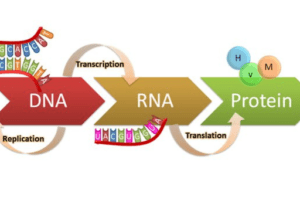Multiple health benefits are provided by calcium, magnesium and zinc. Calcium, magnesium and zinc can relieve symptoms of ADHD and anxiety. They also help with back pain, colds and cramps. These nutrients can be helpful if you’re bodybuilding or nursing. Calcium magnesium zinc benefits include supporting bone health and improving overall mineral balance in the body.
Supplements often include calcium, magnesium, and zinc because their functions in the body are complementary. These minerals are essential to a healthy body.
Calcium and magnesium both have positive effects on your teeth and bone structure, but their effects are different. Calcium can help reduce bone loss. This is typically 30-50% less if you don’t get enough calcium. Magnesium increases bone density. Calcium and magnesium are beneficial together.
Calcium is not only good for bone density but also normal muscle function. Zinc is beneficial for the brain and cognitive function. Your hair, nails and skin will also remain healthy if you combine zinc and calcium. It is not their combined benefits that are important, but rather their complementary effects, which work together to maintain overall health.
Calcium magnesium zinc benefits and uses
Experts recommend that a person get all the nutrients they need from a diverse diet. People on low-calorie diets, or those who avoid certain foods like meat, might not be able to get enough minerals from their food alone. Regular intake of calcium magnesium zinc benefits your immune system, helping to keep you strong and healthy.
As such, taking a combined calcium-magnesium-zinc supplement may provide several benefits.

-
Improved mood
There is some evidence that magnesium and zinc can help improve a person’s mental health or reduce anxiety.
Researchers concluded in a study conducted by Trusted Source in 2018 that the total intake of zinc, iron and copper as well as selenium has a negative relationship with depression. Consuming more of these minerals could help to reduce depression.
Researchers found in a review of 2017 by Trusted Source that existing evidence indicates magnesium has a positive effect on anxiety among people susceptible to it. They also pointed out that the majority of studies were of low quality and therefore, additional studies would be needed to prove this association.
It is necessary to conduct further research in order to determine whether these two factors play a significant role in mood regulation.
-
Blood sugar control
Both zinc and magnesium can play a part in controlling blood sugar levels.
According to a reviewTrusted Source from 2019 of 32 controlled trials, taking zinc supplements significantly reduced several glycemic markers in people with diabetes. The factors that were influenced included fasting glucose, fasting insulin, and insulin resistance.
According to a 2017 systematic review by Trusted Source, taking magnesium supplements may help people with diabetes reduce insulin resistance. Future research should be focused on the potential of magnesium to prevent diabetes.
-
Increased Immunity
Magnesium, zinc and copper may help boost immunity.
According to evidence from Trusted Source, magnesium deficiency can contribute to low-grade chronic inflammation. This inflammation may lead to cardiovascular disease, diabetes, and hypertension. Magnesium supplements may be helpful in preventing magnesium deficiency for people who don’t get enough from their diet.
Further evidence suggests that Zinc plays a key role in promoting wound healing, fighting infections and inflammation caused by Trusted Source and supporting the immune system.
-
Better Sleep
Magnesium and zinc may help relax and sleep.
Researchers found in a study conducted by Trusted Source in 2016 that taking magnesium could help reduce mental and physical stress. This could help prevent several conditions such as depression and sleep disorders.
Zinc supplements may help improve sleep for people who are looking to improve it.
-
Improved Bone Health
Many people take calcium-magnesium-zinc as a means to prevent osteoporosis.
Calcium is not produced by the human body, so it must be consumed through food or supplements. A person’s bones may weaken if they don’t get enough calcium. This can lead to osteoporosis.
Zinc is a well-establishedTrusted Source as a mineral that helps promote healthy bone growth and density.
Magnesium plays a role in bone formation by activating Vitamin D. Vitamin D is essential in helping your body to use calcium for building bones.
Side effects
Supplements are generally safe but can have some side effects for some people. The effects can worsen when someone takes too much.
Side effects from taking calcium, magnesiumTrustedSource, and zincTrustedSource may include:
- diarrhea
- Headaches
- Loss of appetite
- Stomach pain and cramps
- Constipation
- Numbness and tingling
- nausea and vomiting
- Muscle weakness
They also compete for absorption by the body. Some people may need to take these minerals separately to prevent deficiencies.
Calcium may not be the best choice for everyone. According to evidence from Trusted Source, taking calcium may increase your risk of developing kidney stones.
Any new supplement should be discussed with a physician to ensure that it won’t interfere with existing medications or worsen pre-existing conditions.
Dosage

Calcium-magnesium-zinc supplements are available from different brands. Manufacturers will have different recommendations for the exact dosage.
The recommended daily value of each mineral is:
- Calcium: 1,000 Milligrams of calcium from a trusted source (mg), or 100% daily value (DV).
- Zinc : 15-50mgTrusted Source or between 136 and 455% of the DV
- Magnesium : 400 to 500 mgTrusted source or 100-125% of DV
The daily values may vary depending on factors like age and gender. With the help of a healthcare professional, a person can determine how much calcium and magnesium they should consume each day.
Natural sources
Experts recommend that you eat a healthy diet, which includes vegetables, fruits and lean protein, as well as whole grains and unsaturated fatty acids. Many people can get all the minerals and nutrients they need by eating a healthy diet that includes a variety of vegetables, fruits, lean proteins, whole grains, and unsaturated fats.
Calcium-rich foods include:
- milk
- Legumes
- yogurt
- Cheese
- green vegetables
Learn more about calcium-rich foods that are not dairy.
Magnesium is found in the following foods:
- dark leafy vegetables, such as spinach
- Whole grains
- Almonds
- Cashews
- peanuts
- Dark chocolate
Continue reading to find out more about foods that are rich in magnesium.
Zinc is derived from:
- Red meat
- ередани
- Whole grains
- Almonds
- eggs
- Lima beans
- poultry
- wheat germ
- Fish
Continue reading to find out more about zinc-rich foods.
When To Take Calcium Magnesium Zinc With Vitamin D3

Knowing when to take calcium-magnesium-zinc supplements with vitamin D3 is crucial for maximizing their effectiveness. These guidelines will help you determine when to add these supplements to your child’s routine.
- With Meals: Taking calcium-magnesium-zinc supplements with vitamin D3 alongside meals is generally recommended to enhance absorption. These supplements can be consumed with food to optimize the absorption and utilization of nutrients in the body.
- Evening: Taking calcium or magnesium in the evening can promote relaxation and improve sleep quality. These minerals calm the nervous system and promote restful sleep.
- Consistency: By establishing a schedule of supplement intake, you can ensure that your child is receiving adequate amounts of calcium, magnesium and zinc on a daily base. Pick a time that fits your child’s schedule and stick with it.
It is important to determine the best time for taking calcium, magnesium and zinc together, as well as vitamin D3, in order to maximize their benefits and ensure proper absorption, especially in children.
Read Also:
Benefits and Uses of Triple Complex Magnesium
Benefits Of Magnesium Glycinate Liquid
Summary
Taking a calcium-magnesium-zinc supplement may help with different aspects of health, including bone strength; sleep quality, immune support, blood sugar control, and overall mood. The combination of calcium magnesium zinc benefits cardiovascular health by regulating heart rhythms and blood pressure
Supplements can have side effects, but are generally safe. A person should consult their doctor before starting a new product. The doctor may have additional suggestions on how to take the supplement and can provide advice about dosage.







